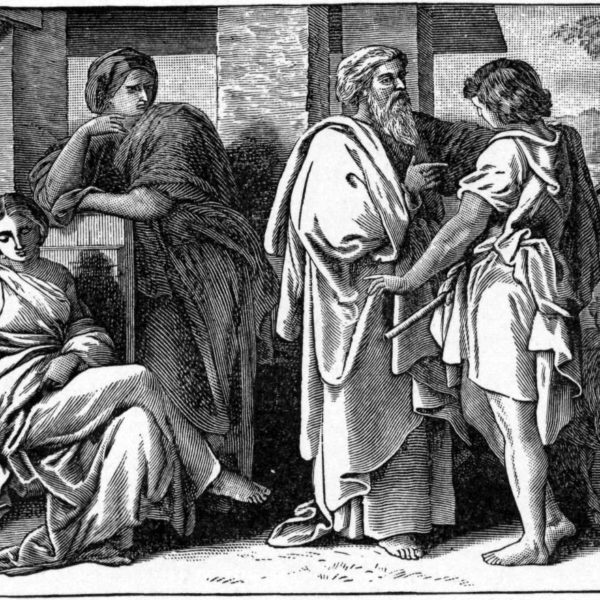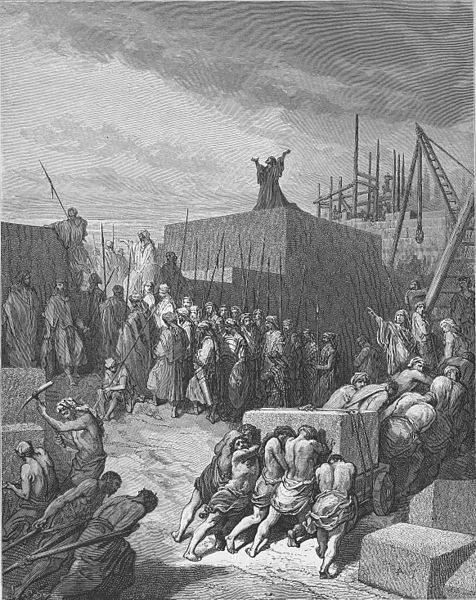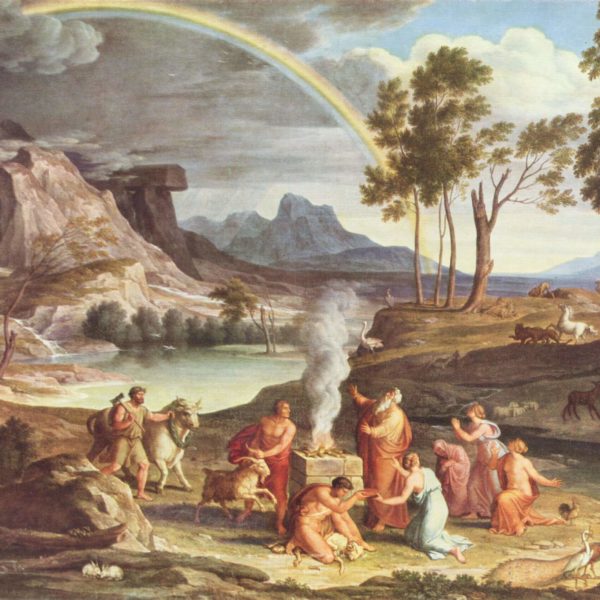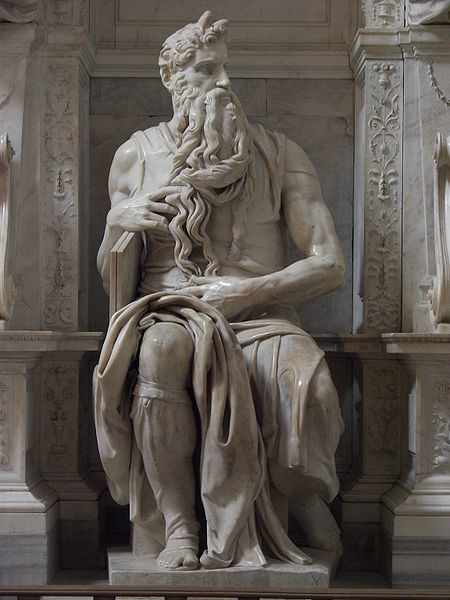Timothy F. Simpson
Essays

Israel’s experience of thirst in the wilderness should draw our attention to the experience of those for whom thirst and lack of water is a reality of life in our own day. We must identify and address some of the ways in which we are complicit in the forms of injustice that produce such a situation.

The Old Testament account of Jacob’s sojourn with Laban can expose some contemporary Christian blindspots, not least in assumptions concerning the ‘biblical’ meaning of marriage. However, we must also reckon with the limitations of the text’s own perspective, giving voice to the silent female characters within it.

I wish to thank Dr. Bernstein for his thoughtful and irenic response to “Zionism Unsettled” (hereafter, ZU). . . . ZU is indeed a hard-hitting document. It says things many people would rather not have discussed and calls out both Jewish and Christian Zionists for their contribution to the misery and suffering of the Palestinian people. Such a resource, which could be utilized at the congregational level, was sorely needed. The Israeli occupation began in 1967, when I was four years old. I’m now a grandfather, and yet it still continues.

The first reaction of the reader to Abram’s calling, “That’s supposed to be me,” gives way to the second realization, which is “That COULD be me.” And it is in imagining the fear and anxiety normally attendant to leaving everyone and everything behind that the seed is planted in the reader’s heart for concern for real-life strangers.

What the world needs is not another group of people scrambling for advantage or clamoring for privilege, but rather a community of people engaged in acts of transcendence that move beyond the interests of the self towards the furtherance of the common good. That will only happen when the church tells the truth about how and why it was so chosen by God and re-orders its practices accordingly.

As it was with Haggai, the real test of leadership is not necessarily the capacity to motivate people to action, but rather to keep them fixed on that same goal when it becomes clear that the rhetoric that moved them in the first place bears little resemblance to the actual situation in which they have to act.
Personally, I’m glad that Hosea is in the lectionary, though there is not much in it that we will “like.” As it is with spinach and colonoscopies, we can nonetheless grasp the value of things which otherwise might leave us cold.

This is what is at the heart of the story. John comes preaching a message of the kingdom in the strongest possible terms—You brood of vipers! As part of his message, to which people seem to be responding, is that they need to “bear fruit worthy of repentance.” That is, don’t just sit there saying you did wrong. Get up and show that you understand by doing something different. And of all the people who might have grasped this message, low and behold, its those nasty tax collectors, the worst people imaginable, who come and ask what they should do to show they really mean what they say about having been transformed. Which is to say, that the narrative presents the very embodiment of a social outsider, confronting the epitome of the empire in the form of the tax collector, who is fundamentally transformed by the encounter.

This makes the book of Ruth a deeply political subject, which is very different from much of the popular appropriation of the book, which emphasizes the relationships first between Ruth and Naomi, and then Ruth and Boaz. These are important pastorally, but there is still much left to learn from the book that goes beyond these narrow concerns…

The Old Testament lection for this week from Isaiah 50 is one of the “Suffering Servant Songs,” (SSS) which, though there is nothing explicitly messianic in many of them, early Christianity nonetheless read as prophecies of Jesus. As George E. Nicklesburg demonstrated in a path-breaking article more than three decades ago in the Harvard Theological Review, the Suffering Servant wasV an important literary motif to which Israel returned repeatedly in an effort to make sense of its status as subordinate state in the larger geopolitical world in which was situated. Characters such as Joseph, Esther, and Daniel represented models of proper behavior and deportment on the part of Jews living in an alien moral universe fraught with everything from the seductive suggestions of compromise to the existential threats of extermination by the foreign powers which dominated them for so many centuries, first as the suzerain of the Israelites and then later, after 587, as their conquerors. The SSS are thus the poetic and prophetic complement to the narrative accounts of the righteous sufferers….

This week’s lection is a well-loved, much-cited chestnut from which a thousand moralistic sermons have germinated. And with good reason. Solomon becomes king and when given the chance to have any wish fulfilled by God, chooses wisdom over the usual favorites, long life, wealth and power.
As even a cursory glance at this weeks lectionary reference will reveal, however, there are a couple of gaps in the text. The first is what happens just before Solomon dies, as he gets last minute instructions from David about scores that the family needs settling. The second is between the time that Solomon ascends to the throne, and the time Solomon and Yahweh have their little heart-to-heart. When you read that part that the lectionary omits, what you find is not Solomon sitting around having his daily quiet time in prayer and study of the scripture, but rather in the ruthless pursuit of control and the exercise of the royal prerogative of vengeance against the enemies of the monarchy…
I’m a liberal, but I don’t want to be in a liberal church, because liberals unchecked are prone to do stupid things. And I think the same holds true for conservatives that want to make a ghetto for themselves on the right. These would be terrible developments for the church to split ourselves the way some on the right are advocating. In the kingdom of God, the church will have every ideological stripe.
The conservatives did what they had to do to win. They ran out the clock, wore people down, kept their troops in line, and ultimately prevailed thereby. Not letting the Assembly debate the issue of the Authoritative Interpretation, however, is going to be a costly mistake. My sense is that commissioners thought that this is something like the ordination question that we debated for so many years. People could get only so far in one Assembly on that issue, but would reach an impasse, whereupon folks would realize that it would just have to wait until the next Assembly to get to the next step. But marriage is very different from ordination. Councils of the church perform ordinations, so you have to get a group of people to agree to move forward. Marriages, however, are performed by individual pastors. And the emotion surrounding a marriage is way higher than any ordination.
When the Committee on Middle East Peace finally made its motion to divest–you guessed it– a substitute motion was made, not divest but rather to invest in the Occupied West Bank. This was a masterstroke of polity, but a completely ridiculous proposal of policy. Presbyterians suffer from congenital niceness, which is the main reason that it had taken us eight years even to get to the point where we could make the least confrontational action possible on the issue, selling our own stocks and bonds.
This was my first experience of how the conservatives would use parliamentary maneuvers to block what was shaping up to be a progressive assembly by proposing study after study, utilizing minority reports and substitute motions designed to keep the Assembly from making decisions or even hearing about some important issues for as long as possible, if at all.
The point of this text, as well as with many other texts in Acts, such as the selection of deacons and the acceptance of gentiles is that the community is given the capacity of discernment to chart its course and that there isn’t any way to guarantee the success of it’s life together other than these given means.
A couple of weeks ago, I was invited by an American Jewish organization to go later this month on a trip to Israel/Palestine to discuss the situation between the two groups. Two weeks later, my erstwhile hosts retracted that offer.
In our present context, it is easy to see why, even in the Church, such a manner of life, in which possessions were held in common, as is described in Acts 4 would be greeted with as much scorn and ridicule as if one had suggested the normalization of pedophilia.
In the end, John 3 presents a very troubling political and theological landscape: there is us and there is them, and them are where they are because they hate what we stand for. The warm and fuzzy feeling that is generally associated with John 3:16 can only be maintained if one stops reading right there. It gets scary and divisive and not very loving thereafter.
The “comfortably numb” posture of many a pastor in the West has become a commonplace, aided and abetted by congregations who want to have confirmed what they already believe and who want their “prophets” fit for the Rotary or the Chamber of Commerce and who either can’t see or can’t say what they see.
This is a schism. Just because it is being orchestrated by smart, tall-steeple pastors who are our friends and evangelical theologians whom we have all respected doesn’t make it any less of one.
Personal control over one’s body is an essential pre-condition of ethical behavior, and reproduction is one of the most important and private aspects of bodily function any person has.
In many ways, the text represents what is happening in global Christianity, which Westerners still believe is centered in Europe and North America, but which is actually diminishing there by the day even as the faith explodes in the Two-Thirds World.
This kid is a nobody from nowhere. Yet it will be this forgettable, easily dismissed kid whom God will raise up to be the King of Kings and Lord of Lords, the greatest of all who ever lived and ruled, but nothing like any who have gone before him in those roles.
Political Theology and the lectionary for Sunday, November 20, 2011.
To be sure, some smart evangelicals like Chuck Colson have abjured Rand in toto for her atheism, but her basic premise that government is the root of all evil and that unfettered capitalism is the answer for everything is as true as Trinitarianism in most evangelical’s minds and hearts, a position all but unheard of in Christianity prior to the 20th century.
To think this way as a Christian, one has to do strange things with the Scripture, such as with this week’s lectionary gospel passage for Christ the King from Matthew 25:31-46. The obfuscation of what’s going on in the text is accomplished by diminishing one aspect of the text, while overemphasizing another.
In this present age, we are beset by people, inside and outside of the church, who are on an anti-tax jihad.
In the near future, we will kill by automation.
This text is one of the most fruitful lessons for thinking about the political theology of scripture in the whole three-year cycle. It is also one of the most humorous texts in scripture, as the powerless subvert the powerful.




